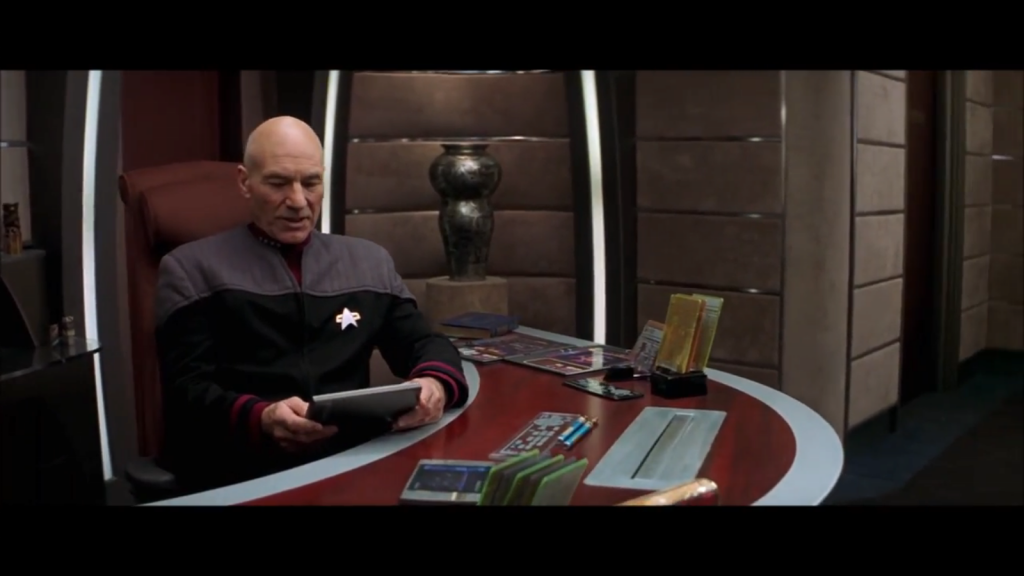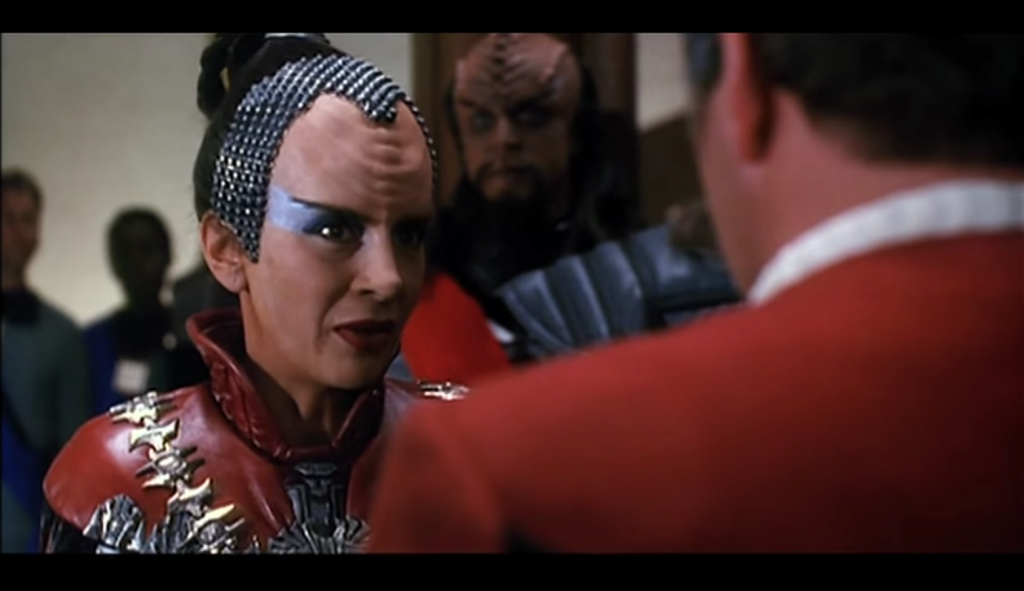Star Trek: Picard, and the Concept of Sequel Series
- January 21st, 2020
- Posted in Opinion/Analysis
- Write comment

As I write this, we are just two days away from something many Star Trek fans thought would never happen: the return of Patrick Stewart to the role of Captain Jean Luc Picard. While we haven’t seen even an episode of the show yet, it’s clearly not The Next Generation, whether fans want that or not. But what does it mean to revisit such a classic, impactful character in a sequel series all these years later? Why is now the time, and what can Picard bring to us that some other character couldn’t? And, for those of us who’ve dealt with major franchises before, what makes a series like this different from just another spin-off, like Voyager or Stargate Atlantis? Let’s take a look, here in 2020.
Throughout TV history, we’ve had several different types of series come across our screens. Original series, based on some other media or wholly new, which can kickstart a TV universe. There are spinoffs, like those I mentioned above, which exist in the same world as another show, but star a new or returning character, typically in a different environment. Retools are the same show, usually with a different name and a change of focus. Every once in a while, we see a reunion show, in which the cast of a popular show which has long since been off the air are brought together once again, or a full-fledged revival, where the show starts back almost like it was, as we recently saw with The X-Files, or further back with Doctor Who.
The sequel series, however, is something very rare indeed. Due to the episodic nature of TV shows throughout most of the 20th century, on-going plots were few and far between, much less those plots which merited a follow-up after the series concludes. A sequel series picks up in the wake of its parent show, just like any other sequel would, and draws those dangling plot threads to a (hopefully) satisfying conclusion. Within the realm of sci-fi, a true sequel series was almost unheard of… until Star Trek: Picard was announced.

Some fans are understandably jittery about the prospect. TNG’s finale is widely regarded as near perfection, but that wasn’t the end of Picard and company’s adventures, anyway. Four films followed, ending with Star Trek Nemesis and its weak performance in 2002. Incidentally, despite Voyager and DS9 continuing on after TNG, this meant that Nemesis’s lackluster execution was the final glimpse of the TNG-era of the Federation, and all live action Star Trek media since have been prequels (with prequels having problems of their own) and alternate universes. Most fans have been clamoring for a return to the TNG-era or beyond for years, but even some of them are nervous about bringing back the actual characters of that era, like Picard. With plots already running thin by TNG season 7, what more stories can they tell about these characters?
But Star Trek: Picard is not a TNG revival. We know we’ll see some old friends once again, even from other shows like Voyager, but that’s not the driving purpose behind the creation of this show. Picard wants to be a show of our times, not just a source of fan service. Jean Luc isn’t the captain anymore; he has no massive starships, no crew, no authority from Starfleet or anyone else. He’s just a man, living his life as best he can, and if anyone has earned a break, it’s him.

So why drag him out of retirement? In many ways, it has to do with how TNG has been received and looked back on over the years. A symbol of techno-utopianism from its very inception, even in ways that TOS wasn’t, TNG became emblematic of the optimism of the 90’s. There was no cold war anymore; no struggles for supremacy. Under Western ideals of freedom and integrity, it seemed peace might finally become achievable. The one thing Nemesis arguably did right was involve the Romulans–Picard’s longstanding adversaries and the Federation’s major rival–and finally put them in a position where the two powers could come to the table and find common ground. As TOS’s films had ended with the advent of friendship with the Klingons, so too had TNG with overtures of support with the Romulans. In Star Trek, we could definitively say that peace is never impossible… and in that sense, it was pretty inspiring. When people talk about Star Trek in a general sense today, this is often cited as what sets the show apart from other sci-fi series. DS9 showed us that war is hell, but Picard and the Enterprise reminded us that even our alien enemies are people who can be reasoned with.
Star Trek has struggled to maintain that idealism in the years since; Star Trek Enterprise was tinged by post-9/11 fears, and the reboot continuity has focused far more on action for action’s sake than any attempts at regaining that heart. Discovery was walked a fine line, but its focus on a singular new character sometimes keeps the scope too small for grand ideas about the universe in general. Some would argue that this sort of idealism is outdated anyway, an ill fit for an increasingly divided world on the brink of major crises. But what is the purpose of Trek without Gene’s idealistic view of the future? And if Star Trek seeks to find that idealism again, why not go for the man who cemented it in the minds of fans?
An important thing to keep in mind here is that an idealistic story need not take place in a perfect world. Things can go wrong, and for the story to be interesting, they almost have to. Fans worry that Picard as a sequel series may destroy that ideal of the Federation, but wasn’t it struggling a bit to begin with, since Starfleet’s leadership is the antagonist in no small number of TNG episodes? Have we forgotten Tasha Yar’s entire backstory? The Federation of Star Trek Picard need not be perfect, but what it stands for is important. It’s worth protecting, and worth saving, even (or perhaps especially) from itself. This is an institution that has brought peace and prosperity to all the citizens of Earth, and more than a quarter of the galaxy.
Is this perhaps starting to sound familiar? A bit reminiscent of real life? An idealistic man is one who can see beyond what’s happening around him, to what we could be, or what we should be, and Picard has always been that. He is a man who will do the right thing, because it is the right thing, in defiance of the rules which require of him some other course of action. Throughout TNG, his rank and station often made that easier. Now, as just a man, can he still uphold these ideals? Can Picard remind us why we love Star Trek so much, and give this series back the core it’s sometimes struggled to find since 2001?
To be honest, I can’t think of anyone better. If Picard, not as a captain or an admiral or an ambassador, but just as a man named Picard, can live up to his ideals… maybe it can inspire us fans to do so as well, and the world needs that more than ever. If any fictional character might be able to inspire that spark of hope for a better world, or a more peaceful tomorrow, it’s him.
At the very least, I can say that’s the case for me. Picard is absolutely the inspiration I need in times such as these. TNG will always be there when I’m feeling down, but to see Picard tackle modern issues and still be the force of conviction he’s always been… now that will be something truly special.




No comments yet.